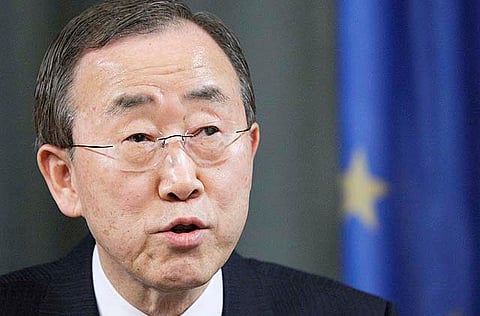Ban has done well to rebuild UN confidence
He has rightly focused on issues like climate change and food, energy and water crises

The United Nations is the world's best attempt at managing its global affairs in a coordinated and inclusive manner. Inevitably, this potential world government has run up against strong opposition from powerful nations who are able to ignore it and go their own way when they want. It is also inevitable that the UN has strong support from the world's smaller nations, who see the UN as their route to a seat at the high table.
Ban Ki-moon has just been unanimously elected for a second term as eighth secretary-general, although the verdict is still out on his success.
When first appointed, he said that he wanted to be remembered as the secretary-general that presided over finding a solution to global warming. This is not likely to happen.
Ban has succeeded in re-balancing the UN to manage the expectations of the many small nations and the few large ones. In this he has been helped a lot by the arrival in the White House of the UN-friendly Barack Obama.
Ban has listed his priorities as mobilising world leaders to deal with climate change, economic upheaval, pandemics and increasing pressures involving food, energy and water. These are all huge issues and Ban is right to focus on them since that is where the UN is best at gathering together technocrats and politicians, and building the basis of a global response.
It means that he has been much less high profile in tackling the political flashpoints of the world. The long-running occupation of Palestine has been the subject of many UN resolutions, which have been ignored by Israel and the United States with impunity. Despite this failure, Ban displayed great personal commitment by his visit to Gaza just after the siege by the Israelis.



